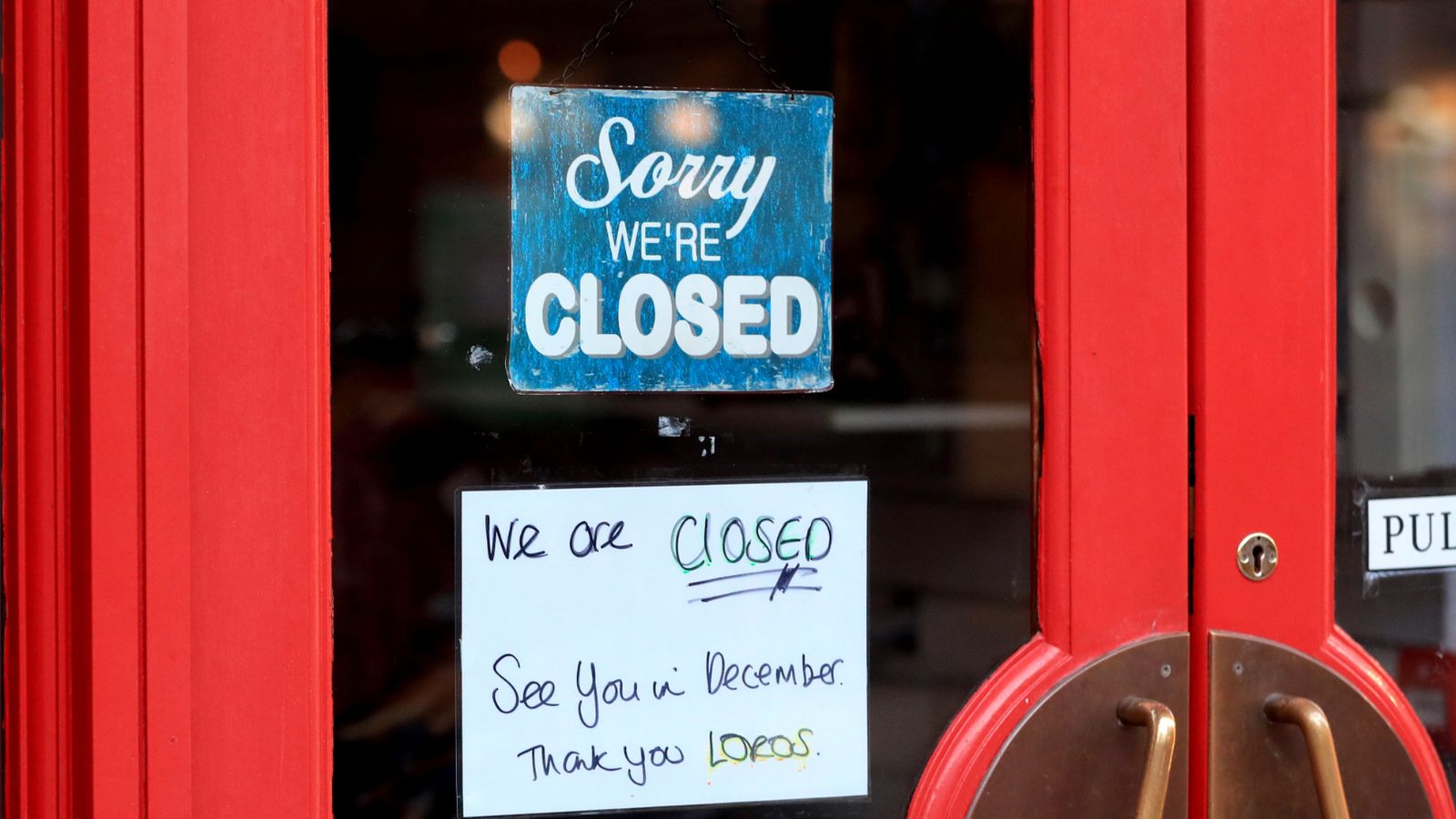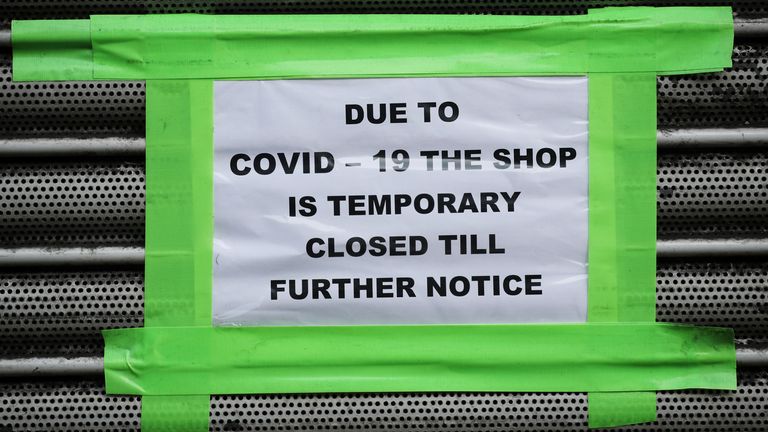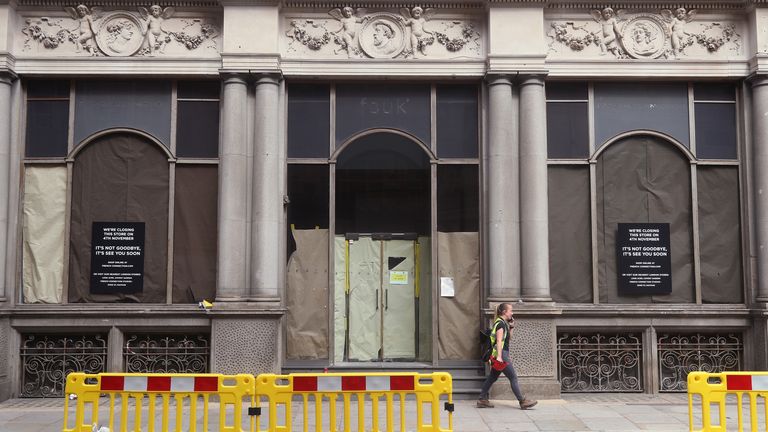A ban on evicting businesses has been extended to the end of June – but a property industry body said it was a “scandal” that some are not paying rent even though they can afford it.
The government said a moratorium on landlords kicking firms out of their premises, due to expire at the end of this month, had been pushed back further to help them back to their feet as they reopen.
Households struggling to pay rent have also been given more support with a ban on bailiff-enforced evictions – except in cases such as fraud and domestic abuse – and a requirement for property owners to give six months’ notice extended until the end of May.
The government said it was acting to try to help businesses worst affected by the pandemic, such as bars and restaurants, which will not be able to reopen fully until 17 May under its roadmap out of lockdown.
Housing secretary Robert Jenrick said: “It is right that as we move through the roadmap, we ensure that businesses and renters continue to be supported.”
Business secretary Kwasi Kwarteng said the move would give businesses “breathing space… to prepare for a safe reopening”.
It adds to the additional support grants and extension of the furlough and business rates relief announced in the budget last week to help struggling firms.
But the British Property Federation described the announcement as a “U-turn”.
Its chief executive Melanie Leech said: “As they prepare to reopen, in premises which property owners and their agents have kept safe and well-maintained, the scandal of those well-capitalised businesses who can pay rent, but have chosen not, cannot be allowed to continue.”
Ms Leech described the behaviour of such firms as a raid on the nation’s pensions and savings invested in commercial property as well as a blow to local authority landlords.
She said property owners wanted their tenants to thrive and that businesses should be confident they could approach them “to forge an economic partnership in which they can agree to manage rental debt fairly”.
Ms Leech added that in most cases landlords had been working well together with businesses to come to new arrangements as lockdowns squeezed their ability to pay but there were a minority of cases where relationships had turned “toxic”.


